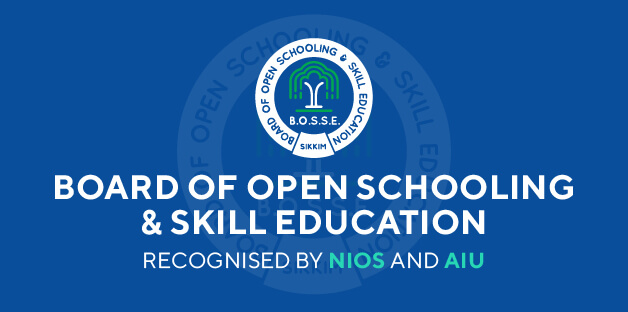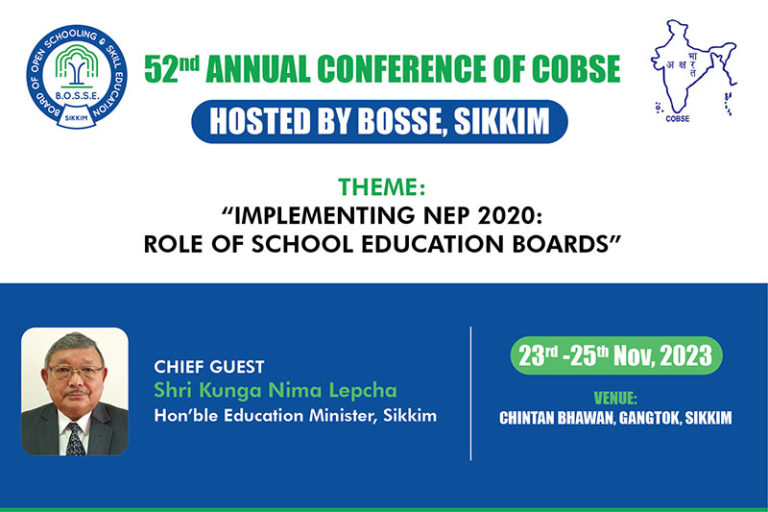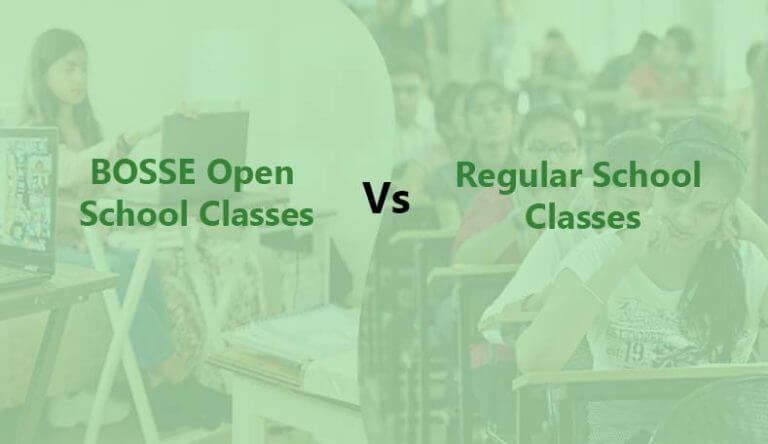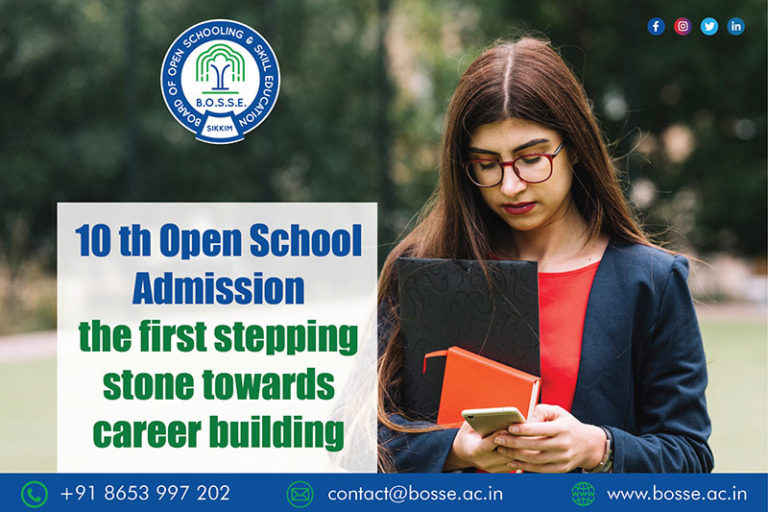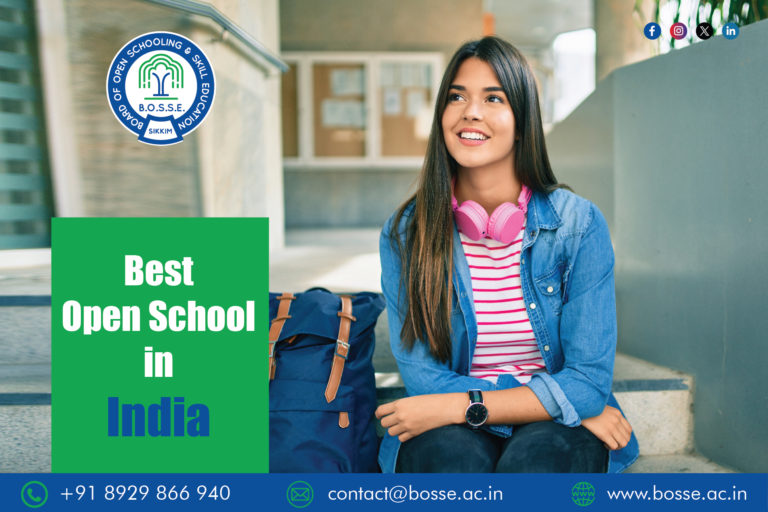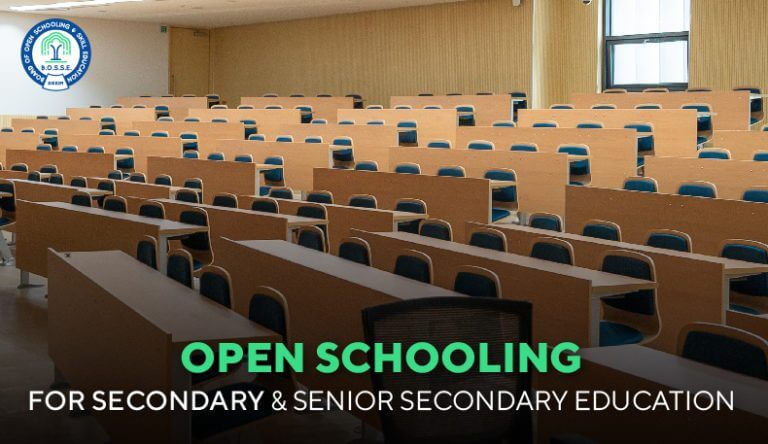Illuminate Your Career with BOSSE, a Board of Open Schooling
The CBSE-sponsored open school project in 1979 marked the beginning of open schooling in India. A decade later, in 1989, the Ministry of Human Resources and Development established an independent organization to oversee the project, which was named the National Open School (NOS). In 2002, the National Open School (NOS) was renamed the National Institute of Open Schooling (NIOS). Furthermore, under Act No. 14 of 2020, NIOS formed BOSSE, a Board of Open Schooling and included it in its list of open schools to make universal education, as well as skill and vocational training, more accessible to all students up to the pre-degree level. The board’s primary goal is to provide education to society’s underprivileged segments, in addition to being desirable owing to its inherent relationship with the human psyche and psychological growth. Its beneficiaries include the physically and intellectually challenged, the school failed, women, school dropouts, and people of rural and distant locations. BOSSE is also favored by students pursuing a career that demand them to dedicate more time than the time-bound structure and attendance requirements of official school systems allow. Students who want to take special combinations of subjects that aren’t available in the traditional system attend open schools. In addition, the board contributes to the cause of adult literacy. BOSSE Open School Admission is the greatest platform for students who, for whatever reason, are unable to attend regular schools to have access to the same educational opportunities as those who do. For a nominal fee, it provides education to destitute, disadvantaged, and backward students.
Benefits of BOSSE
- Any of the learning programs have no upper age limitations.
- There is no set time limit for completing an examination. A course can be completed in any period the student prefers, for example, what would normally take one year of traditional schooling can be completed in four, five, or even more years if the student so desires.
- There are no classes that need to be attended.
- BOSSE exams can be given at any time when the student feels ready.
Functions and Responsibilities
- Taking initiatives to build a strategic plan for developing and expanding India’s Open Schooling program.
- BOSSE, an Open Schooling design a necessary action plan for making education equal and inclusive for underrepresented and disadvantaged groups such as girls/women, minorities, schools failed and dropouts, physically and mentally challenged people, and others.
- To provide a diverse range of academic and vocational courses, and continuing education courses, as well as life-enhancement courses, up to the pre-degree level.
- To Create need-based curriculum and self-study materials for (I) Open Basic Education (OBE), (II) Secondary and Senior Secondary Education, and (III) Vocational Education and Training (VET) Programs with an emphasis on skill development.
- To develop multi-media and multi-channel delivery mechanisms for effective courseware transactions in support of courses and programs.
- Establishing study centers at agencies, organizations, and institutions in India and overseas to provide excellent student support services for learners.
- Conduct exams and issue awards to successful students.
- To improve the quality of learning in ODL (Open and Distance Learning) by surveillance, supervision, and assessment, while retaining comparability with formal education norms and maintaining its unique identity.
- To conduct Open Schooling-related research, innovation, and development initiatives and to disseminate the results to all stakeholders.
- To collaborate with government plans and programs in the education sector to achieve national aims and objectives.
BOSSE, the Board of Open Schooling provides a unique platform for students to select senior and senior secondary courses as well as skill and vocational programs. It may provide customized educational assistance to students who require it for specific learning goals such as the NEET, SAT, or other exams. The board is quickly establishing itself as the best option for students who want to continue their education but aren’t focused on achieving a certain time-bound goal, such as passing a competitive exam that would allow them to pursue further studies or qualify them for the desired career.


